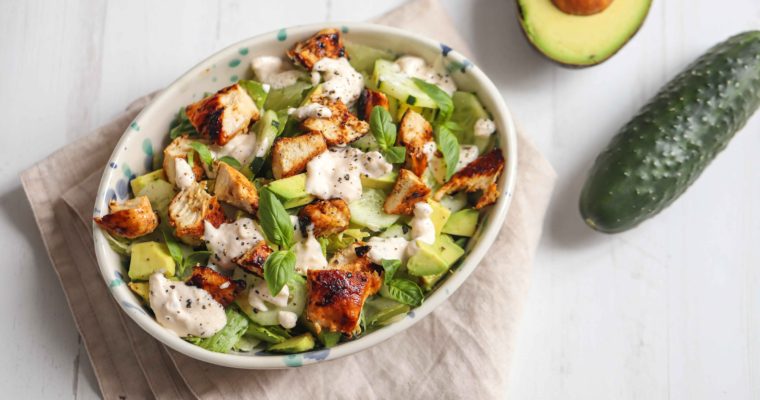HOW TO CUT THE RIGHT WAY
The goal when cutting the smart way is to lose fat without losing muscle.
1 Lose Weight At An Ideal Rate
The Ideal Rate Of Weight Loss
Aim to lose between 0.3% – 1% of your body weight per week.
For most people, this typically ends up being between 0.5-2lbs lost per week, with 0.5-1lb being ideal for those with less fat to lose, 1-2lbs per week being ideal for those with an average amount to lose, and 2lbs or potentially even more (especially at first) for someone with an above-average amount to lose.
2 Create An Ideal Caloric Deficit
Making this ideal rate of weight loss occur is all about creating an ideal-sized caloric deficit.
Caloric Deficit Starting Point
Create a deficit that is somewhere between 10-25% below your maintenance level.
So, for example, if someone had a maintenance level of 2500 calories and wanted to create a deficit of 20%, they’d figure out that 20% of 2500 is 500. They’d then subtract 500 from 2500 and get 2000. In this example, this person would eat 2000 calories a day when cutting.
3 Consume An Ideal Amount Of Protein
Protein isn’t just important when you’re bulking and trying to build muscle.
In fact, eating a sufficient amount of protein each day is likely the most important part of your diet when it comes to losing fat without losing muscle.
Ideal Protein Intake
Eat between 0.8-1.3g of protein per pound of your current body weight each day.
4 Weight Train For The Purpose Of Maintaining (Or Building) Muscle
Even though you’re cutting and fat loss is your goal, that doesn’t mean you should make fat loss the goal of your weight training workouts.
5 Avoid Excessive Amounts Of Cardio
Cardio is additional exercise… and additional exercise requires additional recovery.
This always matters, but it matters even more while cutting because you’re in a caloric deficit, and a caloric deficit is literally an energy deficit.
6 Sleep Enough and Avoid Stress
Remember everything we talked about earlier regarding the effects of sleep and stress on bulking?
7 Come Out Of Your Deficit Periodically
Being in a caloric deficit comes with a lot of potential problems.
- Muscle loss.
- Strength loss.
- Reduced recovery
- Metabolic slowdown.
- And on and on and on.
One of the best ways to help minimise the presence or significance of these issues is to not be in a deficit. It doesn’t require being in a deficit every single day from the minute your cutting phase begins until the minute it eventually ends.
BULKING
The recipe for gaining muscle is the opposite of what it takes to lose weight — you need to consume more calories via your diet than the number of calories you burn through physical activity, in order to create a positive calorie balance. While protein is usually the star macronutrient when it comes to gaining muscle, you need to increase calories from all three macronutrient groups, including carbohydrates and fat.
However, like trying to lose weight, gaining muscle mass takes time. You should aim for a healthy weight gain of around 1 to 2 pounds per week. To gain 1 pound of lean muscle mass, you need to consume approximately 2,000 to 2,500 extra calories over your resting metabolic rate, or RMR, which is the number of calories you need to maintain your weight. In contrast, it takes about 3,500 extra calories a week to gain 1 pound of fat.
So, what should your calories and macros be when bulking? You should be in a 10% caloric surplus, with 2-2.5g of protein per kg of bodyweight, 4-7g of carbohydrates per kg of bodyweight and 0.5-2g of fat per kg of bodyweight
Here’s a simple tool to help you
Calorie Calculator – Bulking Diets
So let’s look at an example calculation:
Let’s assume that you’re a 150lb male that lives a sedentary lifestyle.
Using a TDEE calculator, you’ve worked out that you need about 2,000 calories per day to maintain your weight.
To find your weekly calorie number, simply multiply your TDEE by 7 of course (number of days in a week).
So in this example, multiply 2,000 calories by 7 and the answer is 14,000 calories per week.
Piece of cake, right?
You’d need 14,000 calories a week to stay at 150lb.
But suppose you want to gain an extra pound.
We know that 3,500 calories = 1lb. So simply add that to the weekly number.
3,500 + 14,000 calories = 17,500 calories.
You’d need 17,500 calories a week to gain an extra pound.
To get a daily calorie number, you simply divide that number by 7:
17,500 calories / 7 days = 2,500 cals per day.
We end up with a result of 2,500 calories a day to gain one pound a week





